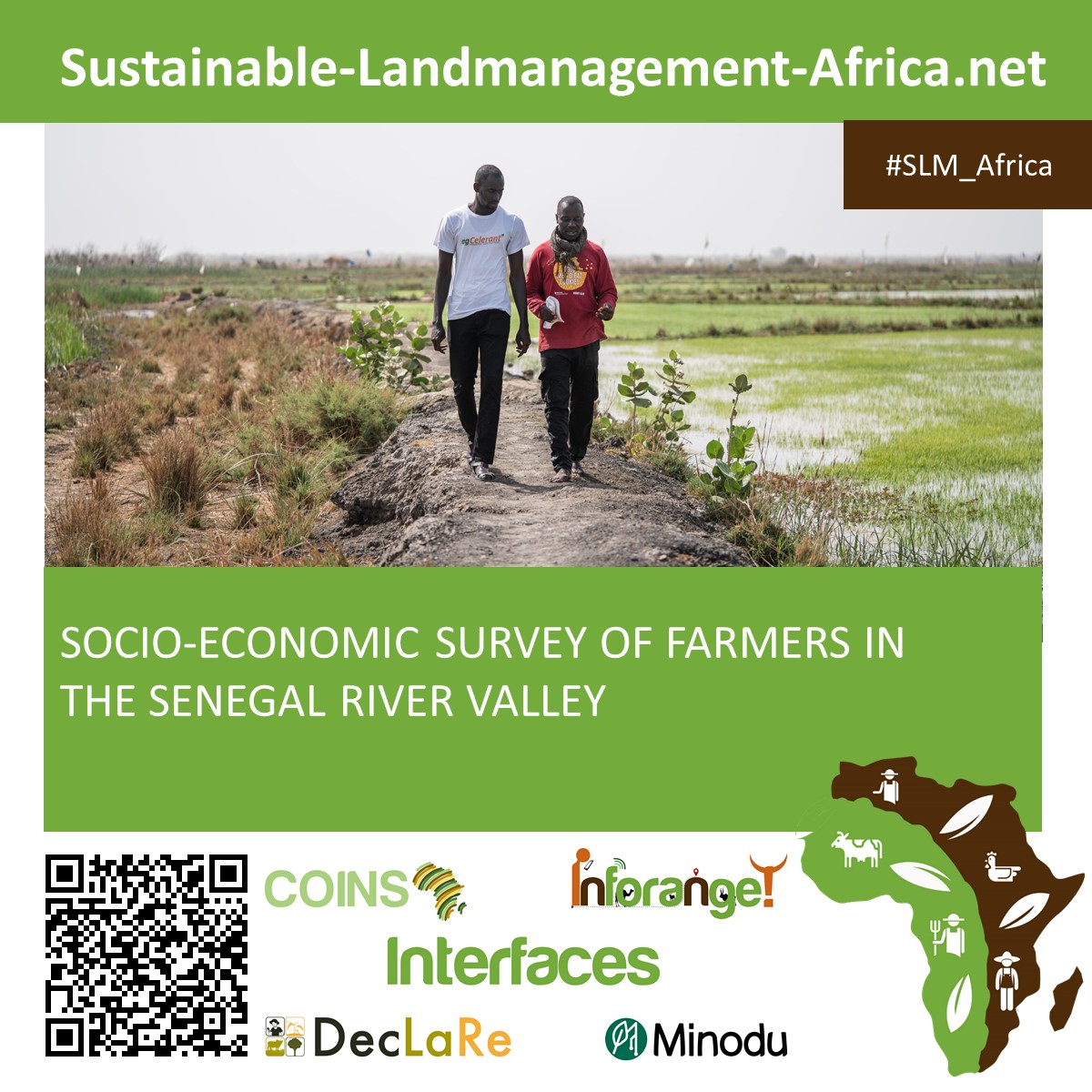SOCIO-ECONOMIC SURVEY OF FARMERS IN THE SENEGAL RIVER VALLEY
Dagana corresponds to the western end of an agricultural intensification gradient encompassing the Senegal River’s delta, where smallholder rice growers have better access to agricultural contracts, financing, and inputs, whereas Podor features less structured value chains and more diversified cropping practices—including mixed crop farming and livestock rearing. More details on the SRV region can be accessed here.
Because of the commensurate variation in agricultural practices, the questionnaire was divided into two distinct sections: collection of generic information on Sustainable Land Management (SLM), and a more specific focus on the System of Rice Intensification (SRI).
The primary objectives of this socio-economic survey were as follows:
- Assess Adoption Levels: Evaluate the extent to which sustainable intensification practices have been adopted by farmers in Dagana and Podor.
- Understand Economic Outcomes: Examine the economic implications of adopting sustainable intensification practices, including income levels, livelihood strategies, and financial resilience.
- Evaluate Environmental Impact: Investigate the environmental consequences of agricultural activities, focusing on soil health, water management, and biodiversity conservation.
- Explore Community Perspectives: Understand the awareness, attitudes, and perceptions of the community regarding sustainable agricultural practices, identifying barriers and opportunities for further adoption.
Realisation
The survey instrument was designed with the University of Hohenheim, University of Bonn – ILR, ZALF Muencheberg and Ruhr University Bochum. It was administered by MANOBI AFRICA from October 23 to November 3, 2023, with the support of IPAR (COINS living lab coordinator) and partner farmer organisations UJAK and Union de Galoya (provision of farmers and enumerators in Podor). Prior to field data collection, enumerators and supervisors underwent a fast-track training programme to ensure a clear and common understanding of survey objectives, ethical considerations, and interviewing techniques to reduce interviewer bias, and enhance the overall reliability of the survey results. The data collection process was done using MANOBI AFRICA’s Jotbi tool installed on each smartphone distributed to enumerators and supervisors. Enumerators visited 550 pre-selected farmers (448 male and 102 female) to conduct the survey.
Results
The overall findings can be accessed on this dashboard. Salient results follow:
Over 94% of the Dagana population focus on rice cultivation whereas in Podor only about 57% of the population perform rice cultivation, about 11% perform horticulture, and 32 % of the respondents have different principal sources of income—in accordance with the background context of both departments.
In Podor, 57% and 89% of the surveyed population was unaware of Sustainable Land Management and Sustainable Rice Intensification, respectively. In Dagana, 44% and 62% of farmers lacked awareness of these concepts respectively, yet many of them revealed to be implementing fragments of these concepts.
The primary reason invoked for non-adoption of sustainable intensification practices in both regions is the lack of adequate-scale machinery, principally for weed removal. Labour costs associated with manual transplanting came second, along with a lack of well-trained personnel to properly perform this task.




